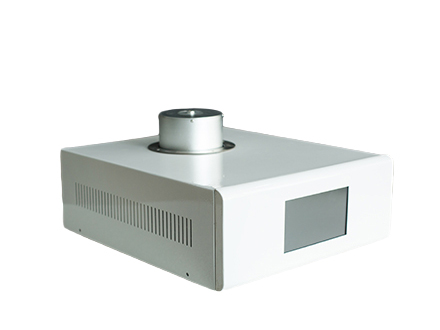Date:2020-06-10 11:04

Instrument introduction:
Differential scanning calorimetry, as a classical thermal analysis method, has been widely used in the research and development, process optimization, quality control and failure analysis of various materials and chemistry fields. By using DSC, we can study the phase transformation of inorganic materials, melting of polymer materials, crystallization process, polymorphism of drugs, solid / liquid phase ratio of oil and other foods.
Instrument purpose:
Measure the physical and chemical changes related to heat, such as glass transition temperature, melting point, melting temperature, crystallization and crystallization heat, phase transition reaction heat, thermal stability of products, curing / crosslinking, oxidation induction period, etc.
Main features:
1. The new fully enclosed metal furnace design structure greatly improves sensitivity, resolution and baseline stability.
2. It adopts imported alloy sensor, which is more corrosion-resistant, anti-oxidation and high sensitivity.
3. With Cortex-M3 core arm controller, the operation speed is faster and the temperature control is more accurate.
4. USB two-way communication is adopted to realize intelligent operation.
5. The 7-inch 24 bit color full-color LCD touch screen is used to display the status and data of the instrument in real time.
6. Intelligent software design, automatic drawing of the whole instrument, software can realize various data processing, such as calculation of enthalpy, glass transition temperature, oxidation induction period, melting point and crystallization of substances, etc.
technical parameter:
1. DSC range: 0~±500mW
2. Temperature range: room temperature~800℃
3. heating rate: 0.1~80℃/min
4. Temperature resolution: 0.01℃
6. Temperature repeatability: ±0.1℃
7. DSC Noise: 0.001mW
8. DSC Resolution: 0.001mW
9. DSC accuracy: 0.01mW
10. DSC sensitivity: 0.01mW
11. Temperature control mode: temperature rise, constant temperature (full program automatic control)
12. Curve scan: temperature rise scan
13. Atmosphere control: automatic switching of instrument
14. Gas flow:0-200mL/min
15. Gas pressure:0.2MPa
16. Display mode: 24 bit color 7 inch LCD touch screen display
17. Data interface: standard USB interface
18. Parameter standard: equipped with reference material, with one button calibration function, user can self calibrate temperature and enthalpy
19. Working power supply: AC 220V 50Hz or customized
20. Power:600W
Reference standards:
GB/T 19466.2 – 2004 / ISO 11357-2: 1999 Part 2: Determination of glass transition temperature;
GB/T 19466.3 – 2004 / ISO 11357-3: 1999 Part 3: Determination of melting and crystallization temperature and enthalpy;
GB /T 19466.6- 2009/ISO 11357-3 :1999 Part 6 Determination of oxidation induction time (isothermal OIT) and oxidation induction temperature (dynamic OIT) during oxidation induction period。